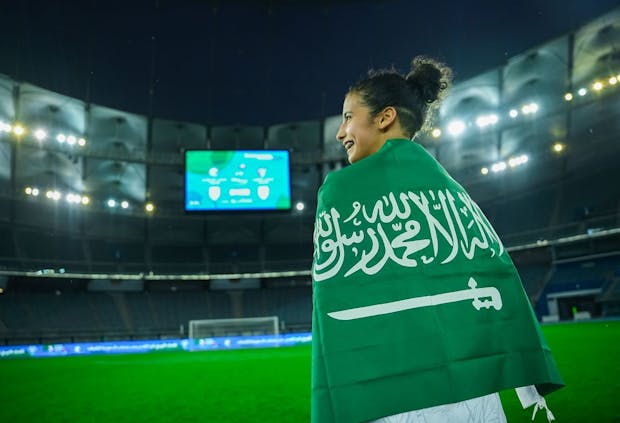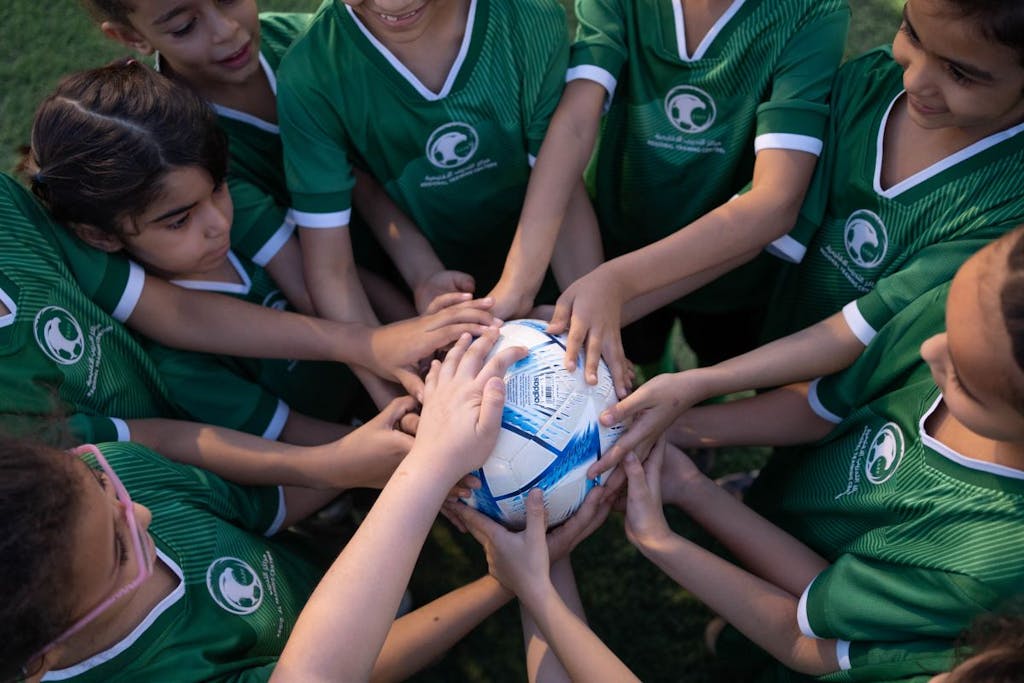
Since women were permitted to attend football matches in 2018, the sport has seen some extraordinary milestones. The in-depth exploration (available here) charts the sport’s recent successes and discusses its role in societal transformation, in line with Saudi Vision 2030.
As Jan Paterson, managing director of NEOM Sport, says: “This report is our way of truly understanding the landscape – where we are, what obstacles lie ahead and how the future could look. But it’s about more than just football. It’s about providing more opportunities for women and demonstrating the far-reaching impact that sport can have on individuals and communities.”
The message that comes out of the report is that this is a strategic and collaborative effort, from grassroot level all the way to elite, that’s creating a powerful momentum.
Change beginning at the grassroots level
At the heart of this progress is grassroots development. The Girls’ Schools League stands out, with over 70,000 female participants in 2023 – a 46 per cent year-on-year increase. These initiatives feed directly into community and professional club pipelines, ensuring a continuous stream of talent.
With six regional training centres and national competitions like the SAFF Women’s Cup, opportunities for female players to showcase and hone their skills have multiplied. These efforts are improving accessibility across Saudi Arabia’s vast geography.
Leadership and training programmes
Role models and leadership have also been key to progress. International figures like Monika Staab and Lluis Cortes have brought expertise and visibility to the sport, while Saudi pioneers like Dona Rajab embody what’s achievable. Training programs, including over 50 coaching courses, have developed a new generation of leaders. That’s resulted in an ecosystem of over 1,000+ coaches and 35 female referees.
Creating pathways for future stars
With professionalisation as a cornerstone of its strategy, Saudi Arabia is rapidly enhancing its player pathways and leagues. Registered players have surged to over 1,500, with 195 per cent growth in professional players in recent years. This development extends to the SAFF Women’s Premier League, which now attracts international players from 20 nationalities, showcasing the Kingdom’s ability to compete on the global stage.

Meanwhile NEOM’s efforts to establish elite competitions, coupled with increased visibility through agreements with broadcasters like SSC and DAZN, underline the sport’s commercial potential. Indeed, commercial deals with global brands like Lay’s and Rexona highlight the sport’s marketability, creating new revenue streams and broadening its appeal.
Social impact begins to flywheel
The report also shows how women’s football in Saudi Arabia has emerged as a cultural force, promoting healthier lifestyles, gender equality, and national pride. Campaigns like #SeeUsPlay have successfully mobilized communities to embrace the sport, driving increased viewership both in stadiums and online.
Whilst the journey of women’s football in Saudi Arabia has only just begun, the trajectory is clear. The combination of grassroots initiatives, professional leagues, infrastructure investment, and visionary leadership positions the Kingdom as a future leader in the sport.
Jan Paterson captures this optimism: “NEOM Sport’s innovative approach provides opportunities for all. By raising the profile of women’s football, we’re fostering a culture of empowerment and paving the way for future generations.”
The full report is available here. For more information, contact media@neom.com.